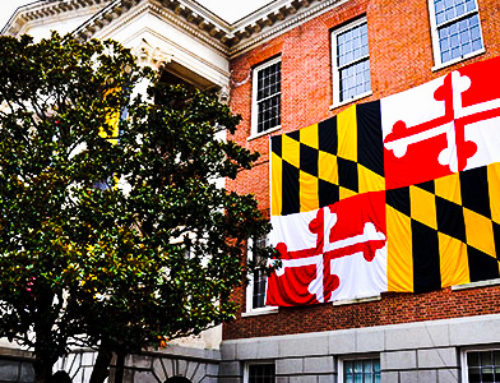View by Topic
Recent Articles
-
EPA Will Keep Current Limits for “Forever Chemicals” in Drinking WaterSaturday, May 24th, 2025
-
Court Indefinitely Pauses SEC Climate Rule LitigationSaturday, May 17th, 2025
-
Maryland is About to Regulate Mold But is the Cart Before the HorseSaturday, May 10th, 2025
-
New Environmental Laws from the 2025 Maryland Legislative SessionSaturday, April 26th, 2025
View by Month/Year
“Green Building Law Update” Headlines
Recent Articles & News from
Stuart Kaplow’s blog
at GreenBuildingLawUpdate.com
- EPA Will Keep Current Limits for “Forever Chemicals” in Drinking Water May 25, 2025
- Court Indefinitely Pauses SEC Climate Rule Litigation May 18, 2025
- Maryland is About to Regulate Mold: But is the Cart Before the Horse? May 11, 2025
- BEPS Redux: The Most Far Reaching Environmental Legislation of the 2025 Maryland General Assembly May 4, 2025
Subscribe to the Green Building Law Update!
Stuart Kaplow brings his expertise and extensive experience to the table with his unique digital publication, "Green Building Law Update". Subscribers receive regular updates to keep them informed about important issues surrounding Environmental Law, Green Building & Real Estate Law, as well as the emerging demand for Environmental Social Governance (ESG).
Get fresh content through the lense of Stuart Kaplow's cutting-edge expertise, innovative commentary and insider perspective. Don't miss another issue! Subscribe below.
Federal Court Rules Legal Medical Marijuana Dispensary Cannot Deduct Business Expenses
Last week the U.S. Court of Appeals for the Ninth Circuit affirmed the Tax Court’s decision precluding a tax payer from deducting ordinary and necessary business expenses associated with a medical marijuana dispensary in San Francisco.
This decision and the underlying position taken by the IRS is problematic for the entire cannabis industry, including in the 23 states where medical marijuana is permitted and in the 4 states and the District of Columbia where recreational use is allowed. The result of this decision is to make it very expensive to operate a cannabis business authorized by state law.
In this case, there was no dispute that the operation of the Vapor Room, a medical marijuana dispensary, complied with California law. The Federal appeals court affirmed the Tax Court’s conclusion that 26 U.S.C. § 280E precluded taxpayer from deducting any amount of ordinary or necessary business expenses associated with operation of the Vapor Room dispensary because it is a “trade or business . . . consist[ing] of trafficking in controlled substances . . . prohibited by Federal law.”
The court reasoned that income generating activities in which the Vapor Room engaged consisted solely of trafficking in medical marijuana which is prohibited under federal law. Under § 280E, then, the expenses that business incurred in the course of operating the Vapor Room cannot be deducted for federal tax purposes.
In summary, the California Federal appeals court, in Martin Olive v. Commissioner of Internal Revenue held that the Internal Revenue Code precludes a taxpayer from deducting the ordinary and necessary business expenses associated with the operation of a state authorized cannabis business, making that business very expensive to operate.
Be aware that possessing, using, distributing and selling marijuana are all federal crimes and may be state crimes. Beyond the general disclaimer below about the purposes of the article, this article is not intended to give you criminal law advice or for that matter, any legal advice.









